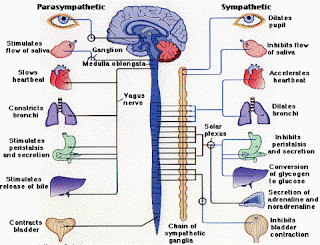How to tell if someone is lying to you.
Human mind works in mysterious ways. There are things we do which are above the threshold of our conscious but there are some things we do, unintentionally.
The Central Nervous System (CNS) of our brain controls our conscious and the Autonomic Nervous System (ANS) regulates functions of our various body organs like heart. It is natural that all our emotions deeply impact the functioning of our heart and any change in the normality of our heart effects each and every organ attached to it.
Not going in further science behind the body language, we just need to understand that lying creates stress and stress deregulates the functioning of heart. It implies that the person lying will show various reflexive responses and emotions which are beyond his or her conscious control since they are being regulated by ANS. So if you can pick these cues which appear when someone is under stress then you can identify correctly whether a person is trying to deceive you or not. A gist of these lying symptoms is described below:
Not going in further science behind the body language, we just need to understand that lying creates stress and stress deregulates the functioning of heart. It implies that the person lying will show various reflexive responses and emotions which are beyond his or her conscious control since they are being regulated by ANS. So if you can pick these cues which appear when someone is under stress then you can identify correctly whether a person is trying to deceive you or not. A gist of these lying symptoms is described below:
1. People who are lying tend to change their head position quickly
If you see someone suddenly make a head movement when you ask them a direct question, they may be lying to you about something. The head will be retracted or jerked back, bowed down, or cocked or tilted to the side.
2. Their breathing may also change
When someone is lying to you, they may begin to breathe heavily. It's a reflex action.
When their breathing changes, their shoulders will rise and their voice may get shallow. In essence, they are out of breath because their heart rate and blood flow change.
3. They tend to stand very still
This may be a sign of the primitive neurological 'fight,' rather than the 'flight,' response, as the body positions and readies itself for possible confrontation.
When you speak and engage in normal conversation, it is natural to move your body around in subtle, relaxed, and, for the most part, unconscious movements. So if you observe a rigid, catatonic stance devoid of movement, it is often a huge warning sign that something is off.
4. They may repeat words or phrases
4. They may repeat words or phrases
This happens because they're trying to convince you, and themselves, of something. They're trying to validate the lie in their mind. For example, he or she may say: "I didn't...I didn't..." over and over again.
The repetition is also a way to buy themselves time as they attempt to gather their thoughts.
5. They may provide too much information
When someone goes on and on and gives you too much information - information that is not requested and especially an excess of details - there is a very high probability that he or she is not telling you the truth.
Liars often talk a lot because they are hoping that, with all their talking and seeming openness, others will believe them.
6. They may touch or cover their mouth
A telltale sign of lying is that a person will automatically put their hands over their mouth when they don't want to deal with an issue or answer a question.
When adults put their hands over their lips, it means they aren't revealing everything, and they just don't want to tell the truth. They are literally closing off communication.
7. They tend to instinctively touch body parts
8. They tend to shuffle their feet
This is a 'flight' response. A person under severe stress will unconsiously try to get out of that situation.
Shuffling feet tells you that the potential liar is uncomfortable and nervous. It also shows you that he or she wants to leave the situation; they want to walk away. They may also make some lame excuse and simply walk away.
This is one of the key ways to detect a liar. Just look at their feet and you can tell a lot.
9. It may become difficult for them to speak
If you ever watch the videotaped interrogation of a suspect who is guilty, you will often observe that it becomes more and more difficult for him to speak. This occurs because the automatic nervous system decreases salivary flow during times of stress, which of course dries out the mucous membranes of the mouth.
Other signs to watch out for include sudden lip biting or pursed lips.
10. They may stare at you without blinking much
When people lie, it's common that they break eye contact, but the liar could go the extra mile to maintain eye contact in attempt to control and manipulate you.
When people tell the truth, most will occasionally shift their eyes around and may even look away from time to time. Liars, on the other hand, will use a cold, steady gaze to intimidate and control.
Also watch out for rapid blinking. The key here is to look for any unusual reflex action of eyes. Too much staring or too much blinking in response to a question are definite signs of deceptive behaviour.
Written By: Nadeem Alam Awan
Courtesy: Dr. Lillian Glass, behavioral analyst, body language expert, and author of "The Body Language of Liars"
Courtesy: Dr. Lillian Glass, behavioral analyst, body language expert, and author of "The Body Language of Liars"








Comments
Post a Comment